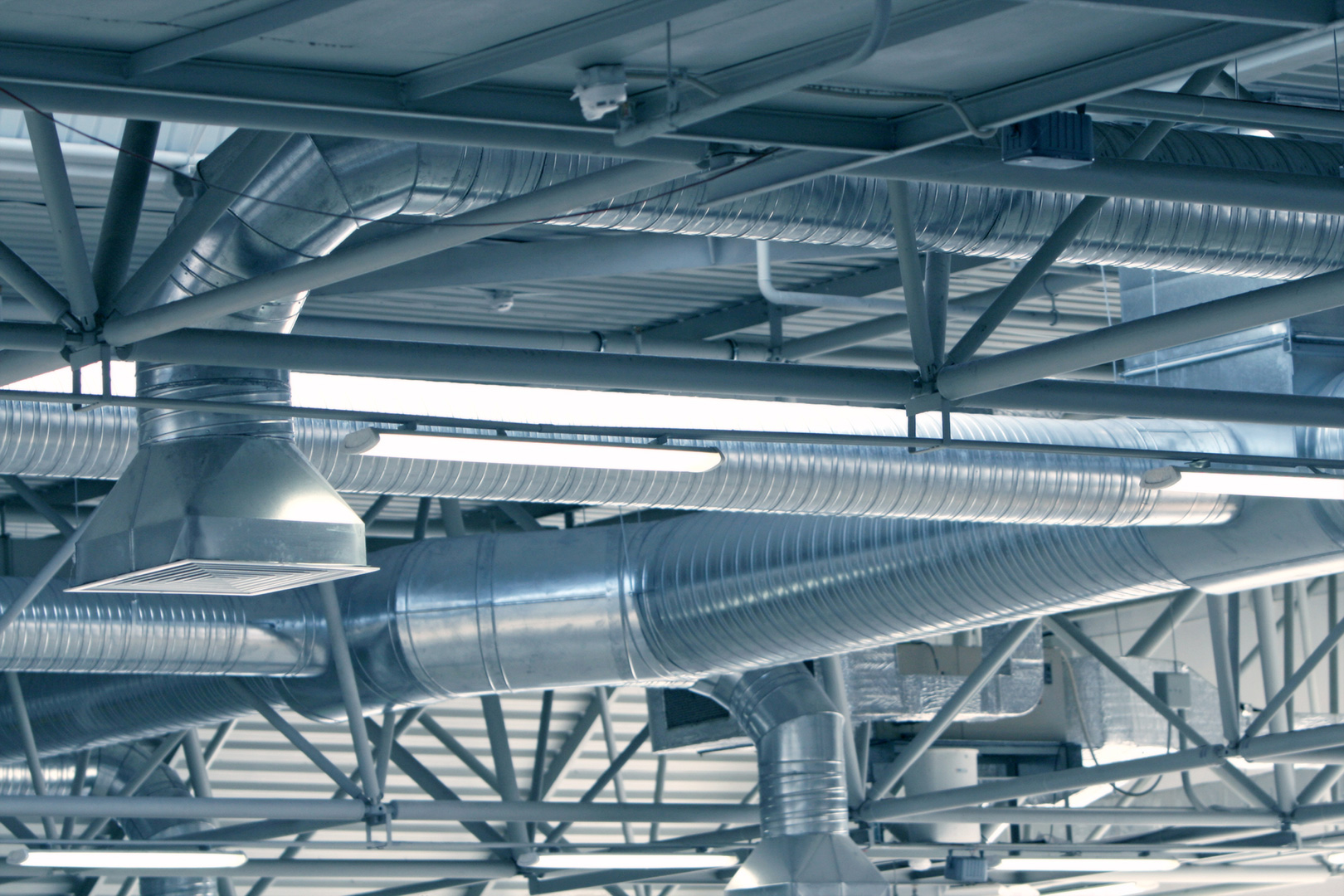Commercial air cleaners offer higher performance and durability than residential models. They are ideal for schools and workplaces because they can target a wide range of pollutants and feature lower noise levels.
Choose a model that is rated to the size of your space (in square feet). Look for HEPA filters and high CADR for smoke and odors.
Viruses and Bacteria
Airborne transmission is the most common way viruses and bacteria spread. When a person sneezes or coughs, tiny droplets filled with viruses and bacteria scatter in the air. A non-carrier can then inhale these droplets, ingest them or touch contaminated surfaces and get sick. In crowded spaces with poor ventilation, viruses and bacteria spread quickly [1].
Some commercial air cleaners use ionizing technologies to help remove pathogens from the air. One popular technology, needlepoint bipolar ionization (sometimes called biocide treatment), creates positively and negatively charged molecules, or ions, which attach to particles in the air and make them too heavy to remain in the air you breathe.
Other ionizing technologies include photocatalytic filters and ultraviolet (UV) light. UV light can sterilize bacteria and viruses by destroying them when they come in contact with them for several minutes. These types of specialized air cleaners can be helpful in schools and other shared spaces where prioritizing clean air is critical.
Chemicals and VOCs
VOCs are a large group of chemicals composed of carbon that easily evaporate into the air. They are a source of odors and can be toxic during serious exposure. VOCs are emitted from paint, paint strippers, varnishes, furniture, carpets, perfumes and other commercially-produced household items. These vapors can also be released by new construction or remodeling activities, office equipment like printers and copiers, craft materials including glues and adhesives, correction fluids and photographic solutions.
Unlike particulate matter, gaseous pollutants such as VOCs cannot be removed by HEPA filters alone. A special activated-carbon filter is required to remove VOCs from the air. IQAir’s V5-Cell technology combines both granular and chemically activated carbon to capture odors and oxidize VOCs such as formaldehyde.
Smoke and Odor
A strong household odor, such as that of smoke, can have serious health consequences. Odors from smoking, campfires and cooking can cause respiratory irritation and coughing, exacerbate allergies and asthma and make it difficult to breathe. These odors are very difficult to eliminate.
Smoke odors linger in the air and become embedded in carpeting, draperies, and other home furnishings. They are also difficult to remove from clothing, and often cling to surfaces like walls, counters, and ceilings.
Unlike sprays that only mask the odors, commercial products such as Zero Odor and Zep Commercial Smoke Odor Eliminator work to capture and eliminate the molecules of bad odors from the air and furnishings. The best way to prevent odors is to ban indoor smoking. Adding potted plants that absorb carbon dioxide and release oxygen to the home can help. Regularly changing furnace and air filters can minimize odors as well. If you still smell odors after using an air cleaner, try opening windows to help circulate the air.
Dust
Dust is a problem for everyone. It contains a hodgepodge of unexpected materials that can irritate the eyes, nose and throat, especially for people with allergies or asthma. The problem is worse for children, the elderly and those with compromised immune systems.
High-performance commercial air cleaners can filter and remove the most dangerous dust particles with pre-filters, HEPA filters and activated carbon filters. They also help to reduce cleaning costs by reducing downtime caused by dust clogging equipment.
You can find a self-contained air cleaner for 3D printing, wood working, bakeries and more in our store. We offer a wide range of options with different HEPA and Carbon filters to meet any need. Unlike home air cleaners, we only recommend commercial-grade HEPA based systems with MERV ratings above 17. These filters are specifically designed for industrial environments and will not break your HVAC system. They are typically found in pharmaceutical plants, surgical centers and cleanrooms.




